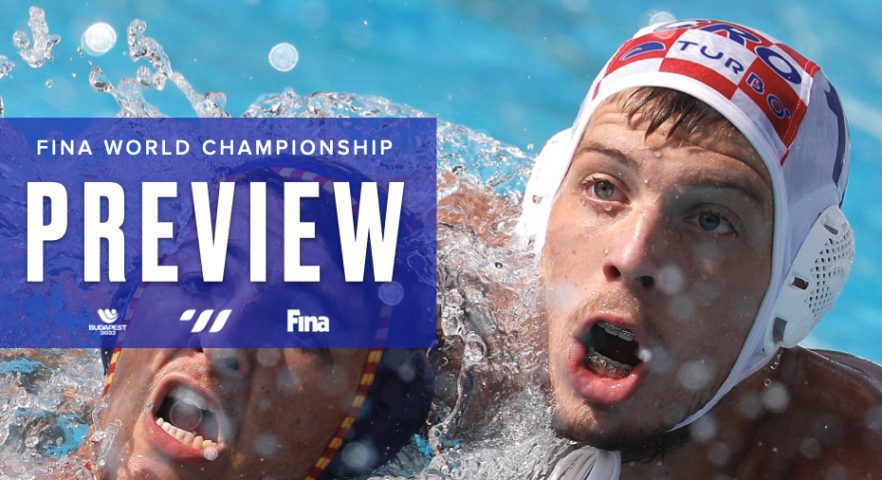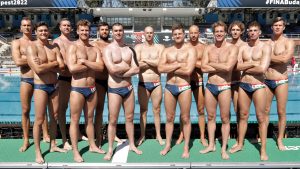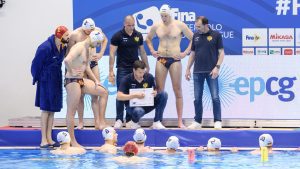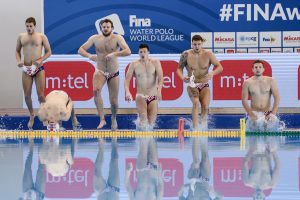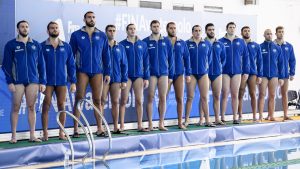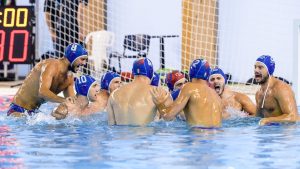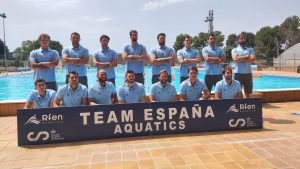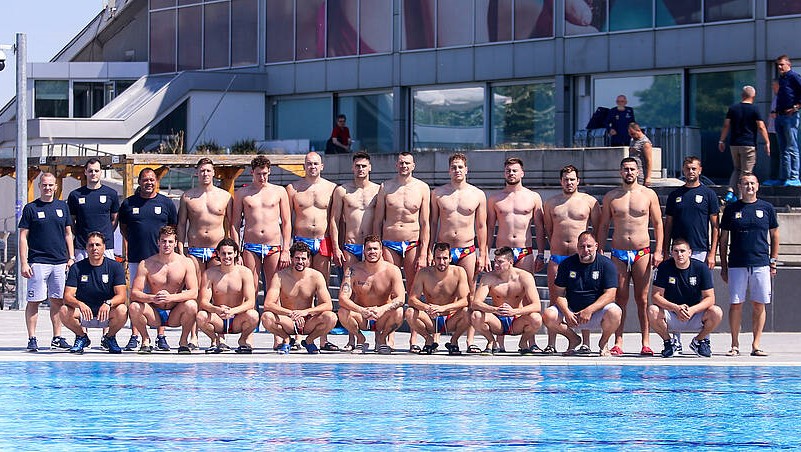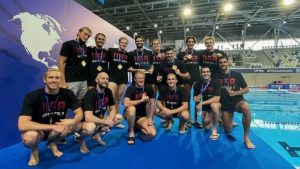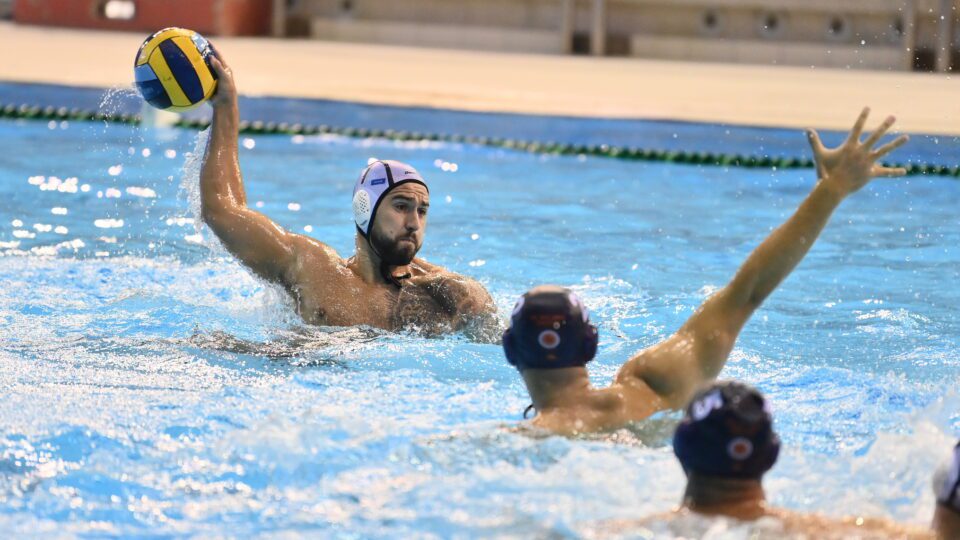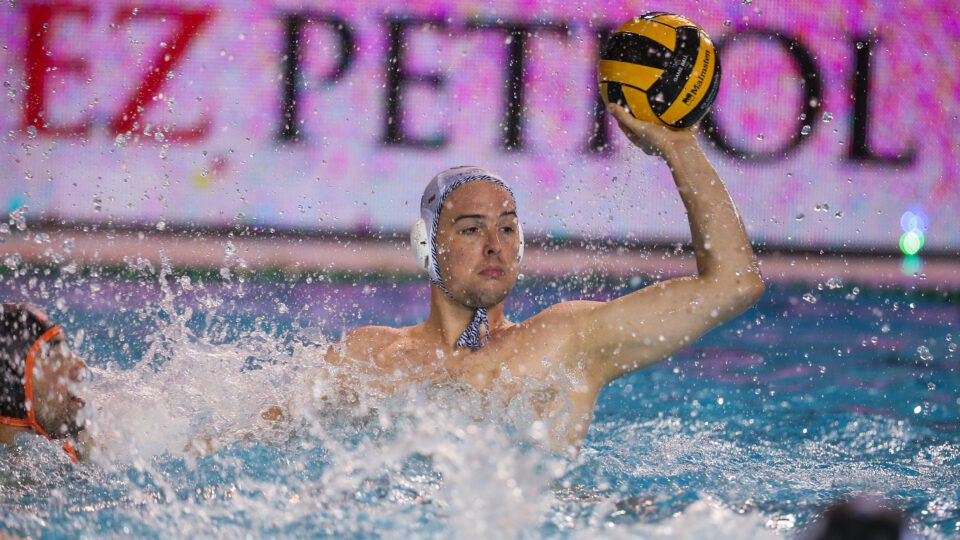The men’s water polo tournament at the 19th World Championships in Hungary will probably be one of the most interesting in recent history.
There are always several medal contenders at the WCH, and it is never easy to predict who will take gold. But, this time, it’s more difficult to foresee the standings for two reasons.
Most of the favorites have changed their teams since the Olympic Games. Many superstars retired. A lot of players of new generations entered the main stage after Tokyo. Only Spain, Hungary, and Greece (three of the four semifinalists in Tokyo) haven’t suffered many changes on the rosters. Therefore, the results and the standings at the Tokyo Olympics aren’t an objective basis for making predictions.
Another reason why the outcome of the men’s water polo tournament is quite unpredictable is the number of competitions in 2022. European clubs finished the season two weeks ago with the Champions League Final Eight (June 2 – 4).
All European teams, the USA, Canada, and Australia had their players at the F8. There are 208 names on the rosters of the 16 teams in the men’s tournament. About 50 of these 208 played at the Final Eight.
Asked to comment on the mentioned two facts, Dejan Savic, the head coach of the Olympic champions, said:
“I think that the level of water polo at the tournament in Hungary will be lower than at the previous editions of the World Championships, but the competition will be more balanced than before.”
In the past decade, the World League Super Final was on the FINA’s calendar shortly after the clubs’ season, and it was a part of the preparations for the World Championships, Olympic Games, or continental championships. But, the double postponement of the WCH in Fukuoka and a sudden decision on the Championships in Budapest in June complicated the already busy season. But, that is a different story… Don’t forget, that the World League Super Final will be played in late July, and the European Championships in Split begins on August 27.
Women also had a demanding club season, but they finished their leagues and European cups quite earlier than men.
Statistics and facts from history say that since 2007 (when the current Olympic champion Serbia debuted as an independent country), eight teams have played in the semifinals: Italy, Hungary, Croatia, Serbia, Montenegro, Spain, Greece and Team USA.
It’s almost certain that three of these eight teams will be at the podium on July 3. The gap between the Americans and the “European big 7” has been smaller and smaller from year to year. Australia might surprise.
Group A (Budapest)
Participating teams: Hungary, Brazil, Montenegro, Georgia
HUNGARY
Best results: 3 gold medals (1973, 2003, 2013), 7 silver medals, 1 bronze medal
Players to watch: Denes Varga, Marton Vamos, Gergo Zalanki, Krisztian Manhercz, Soma Vogel…
Head coach: Tamas Marcz
Results in FINA’s competitions since the 2019 World Championships
2019 World Championships: 4th place.
2020/21 World League: 6th in Europe
2020 Olympic Games: bronze medal
2022 World League: 5th in Europe
(Other competitions – 2020 European Championships: gold)
MONTENEGRO
Best results: silver medal (2013); 3 gold medals, 1 silver and 4 bronzes as a part of Yugoslavia and Serbia and Montenegro
Players to watch: Marko Petkovic, Uros Cuckovic, Petar Tesanovic, Dejan Lazovic, Konstantin Averka,etc
Head coach: Vladimir Gojkovic
Results in FINA’s competitions since the 2019 World Championships
2019 World Championships: 10th place.
2020/21 World League: gold medal
2020 Olympic Games: 8th place
2022 World League: 4th in Europe
(Other competitions – 2020 European Championships: bronze)
BRAZIL
Best results: 10th place (2015)
Players to watch: Gustavo Guimaraes, Gustavo Coutinho, Roberto Freitas…
Head coach: Barbaro Diaz/Roberto Chiappini
Results in FINA’s competitions since the 2019 World Championships
2019 World Championships: 13th place.
2020/21 World League: didn’t play
2020 Olympic Games: didn’t qualify
2022 World League: 3rd at the Intercontinental Cup (qualified for the Super Final)
(Other competitions – 2019 Pan American Games: bronze medal)
GEORGIA
Best results: debutant
Players to watch: Boris Vapenski, Andria Bitadze Nikoloz Shubladze, Dusan Vasic,Nika Shushuashvili…
Head coach: Dejan Stanojevic
Results in FINA’s competitions since the 2019 World Championships
2019 World Championships: didn’t qualify
2020/21 World League: 8th place (qualified as a host)
2020 Olympic Games: didn’t qualify
2022 World League: didn’t play
(Other competitions – 2020 European Championships: 10th place, 2022 ECH: advanced to ECH through qualifications).
Since the first World Championships, held in 1973, a home team has won the gold medal in the men’s tournament just once – Italy climbed the highest step of the podium in Rome in 1994.
Can Hungary become the second men’s team to celebrate the world title in front of the home crowd? We’ll find it out in two weeks, but anyway, Hungary is, as usual, one of the serious title contenders. An experienced team, led by aces Denes Varga, Marton Vamos, Gergo Zalanki, will have a home-field advantage. Playing at home can be pressure sometimes. However, the Hungarians can handle that pressure and turn it into an advantage. Hungary is a land of water polo. There is no doubt that fans’ support will be the hosts’ “extra player” in all matches in the legendary pool on Margaret Island.
Hungary won gold at the previous big competition in Budapest – the 2020 European Championships, which was played in the Danube Arena.
In the first stage, the hosts’ biggest opponent will be Montenegro, probably the youngest team at the Championships. Montenegro was one of the youngest teams in Tokyo, but after the Games, a new generational shift took place in the team. After many, many years, Aleksandar Ivovic and Drasko Brguljan aren’t on the roster. Still, many young Montenegrins have proved their quality in the last few years. Hungary and Montenegro have met twice this year. The Hungarians won both games. That is one of the reasons why the hosts will be favorites in the derby of this group, which will be played on Day 1.
An encounter between the hosts and the Montenegrins will probably decide the group winner.
Debutant Georgia has made progress in the past few years. Brazil has a solid team, but not many players in European clubs. We should respect these two teams. Still, they aren’t contenders for 1st and 2nd place in the group with powerhouses Hungary and Montenegro.
Group B (Debrecen)
Participating teams: Japan, Greece, Germany, Croatia.
CROATIA
Best results: 2 gold medals (2007, 2017), 1 silver and 4 bronze medals; two gold and two bronze medals as a part of Yugoslavia
Players to watch: Marko Bijac, Loren Fatovic, Josip Vrlic, Luka Bukic,Konstantin Kharkov, Ante Vukicevic,etc
Head coach: Ivica Tucak
Results in FINA’s competitions since the 2019 World Championships
2019 World Championships: bronze medal
2020/21 World League: 7th place in Europe
2020 Olympic Games: 5th place
2022 World League: 5th place in Europe
(Other competitions – 2020 European Championships: 4th place)
GREECE
Best results: 2 bronze medals (2005, 2015).
Players to watch: Ioannis Fountoulis, Angelos Vlachopoulos, Stylianos Argyropoulos, Konstantinos Kakaris, Alex Papanastasiou, Dimitrios Skoumpakis…
Head coach: Theodoros Vlachos
Results in FINA’s competitions since the 2019 World Championships
2019 World Championships: 7th place
2020/21 World League: bronze medal
2020 Olympic Games: silver medal
2022 World League: 7th place in Europe
(Other competitions – 2020 European Championships: 7th place)
GERMANY
Best results: 5th place (1991); West Germany won bronze in 1982
Players to watch: Moritz Shoenkel, Maurice Jungling, Denis Strelezkij, Fynn Schutze,etc
Head coach: Petar Porobic.
Results in FINA’s competitions since the 2019 World Championships
2019 World Championships: 8th place
2020/21 World League: didn’t play
2020 Olympic Games: didn’t qualify
2022 World League: eliminated in the 1st stage of the European qualifications
(Other competitions – 2020 European Championships: 9th place; 2022 ECH: advanced to ECH through qualifications)
JAPAN
Best results: 10th place (2017)
Player to watch: Yusuke Inaba, Seiya Adachi,etc
Head coach: Yoji Omoto
Results in FINA’s competitions since the 2019 World Championships
2019 World Championships: 11th place
2020/21 World League: 5th place
2020 Olympic Games: 10th place
2022 World League: didn’t play
As mentioned, since 2007, eight teams have played in the semifinals of the World Championships (Italy, Serbia, Croatia, Hungary, Montenegro, Greece, Spain, and USA). But, only Croatia won a medal at each of the previous seven WCH. The Croats aim to continue a row of successes with a new team. Still, it won’t be an easy task. Eight players will make their debut for Croatia in a major competition. One of the eight debutants is Croatia’s great reinforcement Konstantin Kharkov. It’s sure the new Croatian team can beat anyone.
Croatia has eight new players, while the other favorite in the group, Greece, arrived with eight players who won Olympic silver in Tokyo. The medal in Tokyo gave a new stimulus to the development of water polo in Greece. They don’t want to stop after the historical success in Japan. Today’s team is similar to the squad that finished 2nd in Tokyo. For example, new center-forwards Kakaris and Nikolaidis are excellent players.
Greece and Croatia played each other in the 2022 World League Qualifications. Croatia recorded a narrow 11:10 win in Athens. However, neither of the teams didn’t qualify for the Super Final. After the Budapest Championship, they can start to prepare for the European Championships in Split, where a long water polo summer will end.
Germany and Japan, two teams that never give up, can cause headaches to the favorites. Still, it’s hard to expect the Germans or the Japanese to finish higher than 3rd place in the group. But one surprising result can change everything.
Group C (Sopron)
Participating teams: Italy, Canada, South Africa, Spain.
ITALY
Best results: 4 gold medals (1978, 1994, 2011, 2019),2 silver, 1 bronze medal
Player to watch: Francesco Di Fulvio, Marco Del Lungo, Gonzalo Echenique, Edoardo Di Somma,etc
Head coach: Alessandro Campagna
Results in FINA’s competitions since the 2019 World Championships
2019 World Championships: Champion, gold medal
2020/21 World League: 4th place
2020 Olympic Games: 7th place
2022 World League: 2nd place in Europe (qualified for the Super Final)
(Other competitions – 2020 European Championships: 6th place)
SPAIN
Best results: 2 gold medals (1998, 2001), 4 silver medalsl
Player to watch: Felipe Perrone, Alvaro Granados, Alberto Munarriz, Bernat Sanahuja, Unai Aguirre,etc
Head coach: David Martin
Results in FINA’s competitions since the 2019 World Championships
2019 World Championships: silver medal
2020/21 World League: 4th place in Europe
2020 Olympic Games: 4th place
2022 World League: 3rd place in Europe (qualified for the Super Final)
(Other competitions – 2020 European Championships: silver medal)
CANADA
Best results: 8th place (2009)
Players to watch: Nicholas Constantin Bicari, Jérémie BlanchardJeremie Cote…
Head coach: Patrick Oaten
Results in FINA’s competitions since the 2019 World Championships
2019 World Championships: didn’t qualify
2020/21 World League: didn’t play
2020 Olympic Games: didn’t qualify
2022 World League: 4th place in the Intercontinental Cup (qualified for the Super Final)
(Other competitions – 2019 Pan American Games: silver medal)
SOUTH AFRICA
Best results: 12th place (2015 and 2019)
Players to watch: Lwazi Madi, Ignardus Badenhorst…
Head coach: Marlow Vaughn
Results in FINA’s competitions since the 2019 World Championships
2019 World Championships: 12th place.
2020/21 World League: didn’t play
2020 Olympic Games: 12th place
2022 World League: didn’t play
One of the highlights of the group stage will be a replay of the 2019 World Championships final, Italy-Spain. Three years ago, Italy convincingly defeated Spain (10:5) and became the first men’s team with four World Championships gold medals.
The result in the final in Gwangju didn’t mirror the difference in quality between the two teams. Today, the difference is even more minor. Moreover, many think that Spain is a better team than Italy. Since Gwangju, Italy hasn’t won a medal. It has had ups and downs. Spain finished 2nd in the European Championships, was very close to the Olympic final, and has constantly played at a high level in the past three years. There haven’t been many changes on Spain’s roster since Gwangju. Experience is one of their significant advantages. After the Olympic Games, several Italian aces said goodbye to the national team. Still, their substitutes are excellent players ready to prove themselves. Italy achieved good results in the first part of the season. It qualified for the World League Super Final, as well as Spain.
All in all, neither of the two teams can be considered a favorite for 1st place. They have similar chances of finishing atop the group. Of course, both sides will chase medals.
Canada and South Africa aren’t in the same weight category as Italy and Spain. Canada, which returns to the World Championships after five years, played well at the Intercontinental Cup this year, despite they were without its biggest star, Brescia’s Nicolas Constantin Bicari at that tournament. Still, Canada probably won’t pose a significant threat to Italy and Spain.
South Africa will succeed if it finishes 3rd in the group and avoids matches for the 13th-16th place classification.
Group D (Szeged)
Participating teams: Kazakhstan, USA, Australia, Serbia.
SERBIA
Best results: 2 gold medals (2009 and 2015), 1 silver and 1 bronze; 3 gold medals, 1 silver, and 4 bronzes as a part of Yugoslavia and Serbia and Montenegro
Players to watch: Dusan Mandic, Nikola Jaksic, Branislav Mitrovic, Sava Randjelovic, Strahinja Rasovic, Djordje Lazic,etc
Head coach: Dejan Savic
Results in FINA’s competitions since the 2019 World Championships
2019 World Championships: 5th place
2020/21 World League: 5th place in Europe
2020 Olympic Games: gold medal
2022 World League: 1st place in Europe (qualified for the Super Final)
(Other competitions – 2020 European Championships: 5th place)
USA
Best results: 4th place (1986, 1991,2009)
Players to watch: Ben Hallock, Alex Bowen, Dylan Woodhed, etc
Head coach: Dejan Udovicic
Results in FINA’s competitions since the 2019 World Championships
2019 World Championships: 9th place
2020/21 World League: silver medal
2020 Olympic Games: 6th place
2022 World League: 1st place in the Intercontinental Cup (qualified for the Super Final)
(Other competitions – 2019 Pan American Games: gold medal)
AUSTRALIA
Best results: 4th place (1998)
Players to watch: Blake Edwards,, Luke Pavillard, Nathan Power, George Ford,etc
Head coach: Tim Hamill
Results in FINA’s competitions since the 2019 World Championships
2019 World Championships: 6th place
2020/21 World League: didn’t play
2020 Olympic Games: 9th place
2022 World League: 2nd place in the Intercontinental Cup (qualified for the Super Final)
KAZAKHSTAN
Best results: 11th place (1998, 2015,2017); 2 gold medals, 1 silver and 1 bronze as a part of the USSR
Player to watch: Murat Shakenov
Results in FINA’s competitions since the 2019 World Championships
2019 World Championships: 14th place
2020/21 World League: 6th place
2020 Olympic Games: 11th place
2022 World League: didn’t play
Serbia, the reigning Olympic champion, arrived in Hungary with a rejuvenated but quite experienced team. Only six Olympic gold medalists are on the roster. Still, the other guys have also gained experience in major competitions in the last few years. Many of them played in Gwangju and experienced playing one of the crucial matches in the tournaments – a quarterfinal duel. Only three players will debut at the World Championships. The new team’s first test was the World League’s qualifications. Serbia won 1st place in Europe with five wins in as many matches and proved that it remained in a circle of big favorites.
Nobody should say that Serbia was lucky in the draw since it is the only participant that won’t have a European team as the opponent in the group phase. The Serbs are the favorites in this group, but they mustn’t underestimate two best non-European teams, USA and Australia.
Team USA is the best non-European team in the history of the World Championships, but it hasn’t won a medal yet. The Americans haven’t reached the quarterfinals since 2015 and the championships in Kazan. The 2022 Championships might be their return among the best teams in the world. Many Americans have become key players in European water polo clubs. They are in the same playing system as the European water polo aces. Recco’s center-forward Ben Hallock is a double Champions League winner. Other players are also pretty successful in Europe… That signals that the USA’s national team may catch up with the European selections and maybe reach the semifinals after 13 years. The Americans finished 6th in the Tokyo Olympics; they beat World Champion Italy in Tokyo. But, because of a short pause between the seasons for clubs and national teams, the Americans were in the same situation as the European favorites. They didn’t have enough time for proper preparations.
Australia fought hard battles with the USA at the Intercontinental Cup in Peru (12:11 in the group stage and 6:7 in the final), but the Americans were missing some key players who had obligations in their European clubs. Australia played with a team similar to the World Championships squad. So, the Intercontinental Cup isn’t a real parameter for the predictions. Anyway, the “Sharks” can be a dangerous opponent to the favorites.
Kazakhstan, the 11th-placed team at the Olympics, hasn’t played many matches since Tokyo. It’s unknown what they are capable of. But, few think they can surprise the rivals in Group D.
Day 1, schedule (CET)
Group A (Budapest): Brazil – Georgia (19:30), Montenegro – Hungary (21:00)
Group B (Debrecen): Germany – Japan (18:00), Greece – Croatia (19:30)
Group C (Sopron): South Africa – Italy (18:00), Canada – Spain (19:30)
Group D (Szeged): Australia – Kazakhstan (18:00), USA – Serbia (19:30)
Road to the Finals
Crossover round (June 27):
Match 1: 2A – 3B
Match 2: 3A – 2B
Match 3: 2C – 3D
Match 4: 3C – 2D
Quarterfinals (June 29):
QF1: 1A – winner Match 3
QF2: 1B – winner match 4
QF3: 1C – winner match 1
QF4: 1D – winner match 2
Semi-finals: (July 1):
SF1: winners QF1 – QF2
SF2: winners QF3 – QF4
Finals (July 3)
Final: winner SF1 vs winner SF2
All medal winners
1973 (Belgrade): 1. Hungary, 2. USSR, 3. Yugoslavia
1975 (Cali): 1. USSR, 2. Hungary, 3. Italy
1978 (West Berlin): 1. Italy, 2. Hungary, 3. Yugoslavia
1982 (Guayaquil): 1. USSR, 2. Hungary, 3. FR Germany
1986 (Madrid): 1. Yugoslavia, 2. Italy, 3. USSR
1991 (Perth): 1. Yugoslavia, 2. Spain, 3. Hungary
1994 (Rome): 1. Italy, 2. Spain, 3. Russia
1998 (Perth): 1. Spain, 2. Hungary, 3. Yugoslavia
2001 (Fukuoka): 1. Spain, 2. Yugoslavia, 3. Russia
2003 (Barcelona): 1. Hungary, 2. Italy, 3. Serbia and Montenegro
2005 (Montreal): 1. Serbia and Montenegro, 2. Hungary, 3. Greece
2007 (Melbourne): 1. Croatia, 2. Hungary, 3. Spain
2009 (Rome): 1. Serbia, 2. Spain, 3. Croatia
2011 (Shanghai): 1. Italy, 2. Serbia, 3. Croatia
2013 (Barcelona): 1. Hungary, 2. Montenegro, 3. Croatia
2015 (Kazan): 1. Serbia, 2. Croatia, 3. Greece
2017 (Budapest): 1. Croatia, 2. Hungary, 3. Serbia
2019 (Gwangju): 1. Italy, 2. Spain, 3. Croatia



